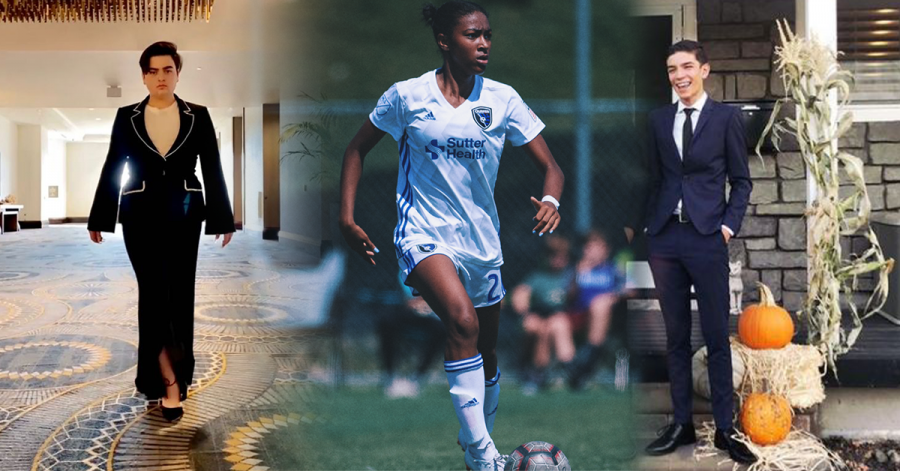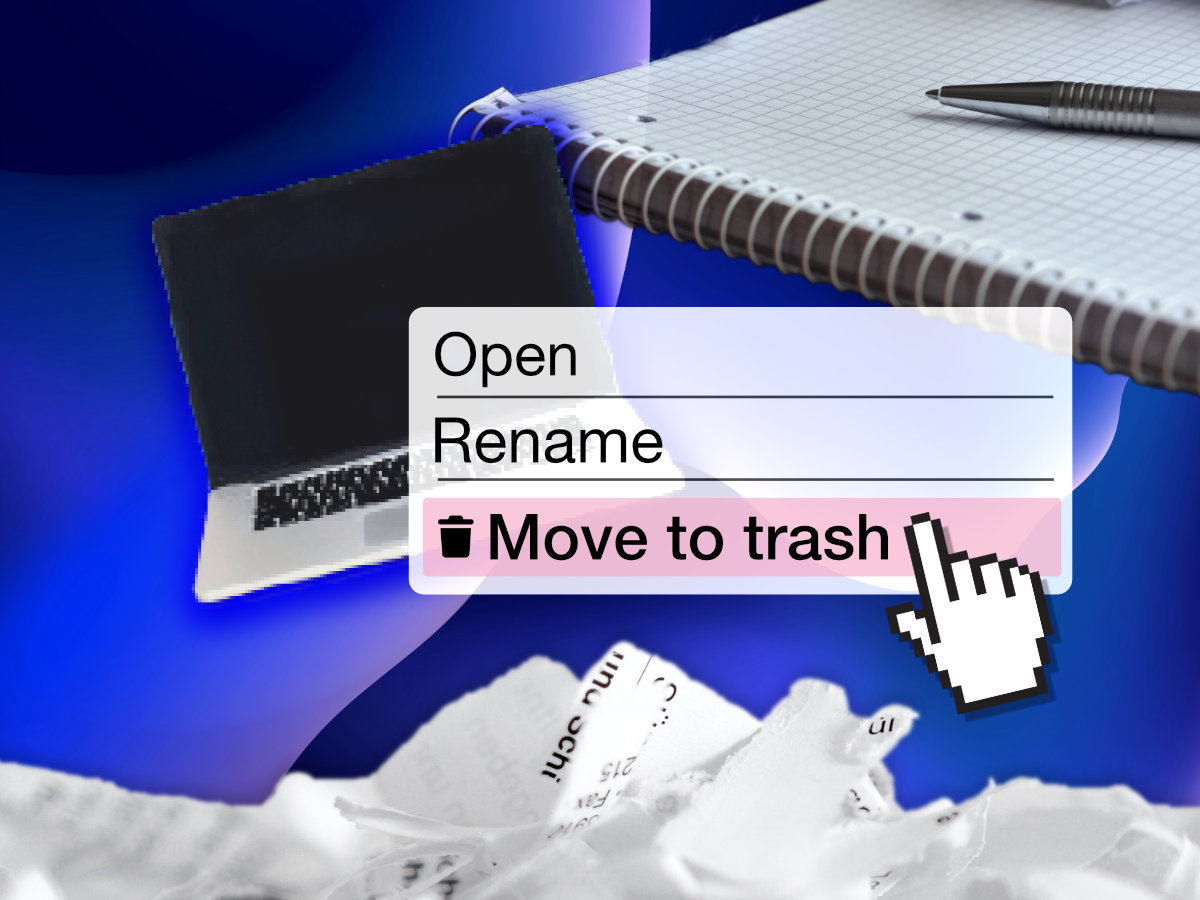With the Board of Student Affairs elections coming up on March 17, the Woodside Paw Print reached out to seniors Elise Evans, Carlos Osuna, and Franco D’Onofrio, the three candidates running for next year’s BOSA president.
Facing issues exacerbated by the coronavirus transition, this is no ordinary election. Thus, candidates’ platforms are more important than ever. In a debate format, each candidate gave their opinion on three pivotal issues: the n-word, discrimination in white-majority classrooms, and the LGBTQ+ community. Continue reading for their responses in no particular order.
What initiatives will you take to address the prevalence of the n-word and other racial slurs at school?
Elise: As an African American female, I have had first-hand experience with this word as the target of it, so this topic is very important to me and close to my heart. I am part of the End the N-word campaign committee and our goal is to, frankly, end the use of the N-word at our school. We are currently working with the freshman transition group to integrate a program that educates the students about the history of the N-word and other racial slurs. Our hope is that educating the freshman every year will then lead to a campus that is free of these horrible racial slurs because the students will understand the severity of the word. I also would like to expand the program beyond freshmen, to the announcements, on posters all over the school, and on the school websites/Canvas. Inclusive speech should be the norm at Woodside.
Carlos: The unfortunate reality of the situation is that it’s become such an ingrained part of the Woodside vocabulary that our school has had to set up an N-word committee, which I’m a member of right now. I’m actually working on a curriculum, which will be taught to freshmen transition students. And I’m kind of uniquely suited to do that because I’m a chief leader right now for freshman transition and I will be in the coming year. The nonchalant use of it is not good. It’s never been good. There’s going to be a video on the announcements. There’s going to be different types of campaigns going on in the classrooms.
Franco: I think there’s clearly an issue with the prevalence of the use of the n-word and other racial slurs at our school. While I directly cannot do anything to stop any person from using this word, I can say this: I do not condone the use of the n-word and other racial slurs. They remind us of great atrocities that have happened in the past, which certainly should not be celebrated. Similar to the “Spread the Word to End the R-Word”, we could implement a “Spread the Word to end the N-word”. There’s nothing I can truly do to stop people from using the word, but I can make clear that that sort of language is not acceptable at school by any students. Should I come in contact with someone who does, I’ll have a personal conversation with them about being more sensitive to topics like these.
Many minority students have faced discrimination and other negative experiences in majority-white classrooms, such as in AS courses. What actions can the student board take to change this?
Carlos: Personally, I’m a minority student, and I definitely have felt intimidated, even just by the letters AP by themselves just have that connotation to them. We can find a way to involve more minority students and take down that stigma around the AP classrooms classes that they’re not welcoming. The other thing is that so many AP classes are unfortunately Eurocentric. People don’t see people that look like themselves in AP classes. I know that’s larger than BOSA, but if we can contribute to that change, then we 100% will.
Franco: I think that recognizing the problem is the first step, which we’ve already done. Within classrooms, I know that teachers try their hardest to create a safe and welcoming environment for their students. Nonetheless, students still face discrimination from other students. To this effect, all I can do is spread the message about kindness and equality. We all have an active role to play, so in my opinion, the best way to counteract discrimination in classrooms is to encourage all students to treat others the way they would like to be treated.
Elise: As a minority student myself taking AS courses, this issue hits close to home. If elected, I hope we can have many conversations directly with the teachers of these classes. In these conversations, the goal would be to have the teachers hear directly from the students about their experiences whether in person or through anonymous submissions, and then for the teachers to reflect on those experiences when creating their classroom environment. I would also love to see a more diverse selection of material, both in content and in authors. While some efforts have been made, it should be expected that the material in AS English classes should reflect the experiences of characters from a variety of racial and ethnic groups as well as the LGBTQ and disability communities. When students feel more comfortable and not out of place, they will learn more.
A large portion of the school is LGBTQ. What things are still left to be done to make our school more welcoming?
Franco: As a gay kid myself, this question hits close to home. Sadly, I can attest to the fact that being part of the LGBTQ+ population at school can be scary and lonely at times. I can say from personal experience that the bathrooms are an especially dark place for kids like me. I remember being terrified of walking into the bathroom because other kids had things to say about me. As a result, I never use the restrooms on campus. If it is an emergency, the only safe bathroom is the one in the nurse’s office. Otherwise, I wait until I get home. I want nobody at school to share this experience with me. Unfortunately, I know that people do. To that effect, there’s no “policy” for an issue like this. I think this goes back to the question about discrimination in classrooms – there is nothing we can do besides improve ourselves, help others around us and be kind.
Elise: I believe that there is still much left to do to help make the school more welcoming. If elected BOSA President, making sure that inclusion and diversity becomes a normality would be a top priority for me. I want our school to become a place where each person of the Woodside Community can feel represented and positive about themselves at any school event or just in the classroom. Inclusion and accessibility should be a key part of the planning process for each of our leadership committees. Like anything else, we at BOSA may not have everything figured out, so I want our “door” to always be open so that the leadership community can hear from all groups on how best to meet their needs.
Carlos: I’m very committed to, on day one, demanding that the flag of the LGBTQ+ community be flown at our school. And while that may be a very simple act, it’s very symbolic. If you drive into that driveway on your first day of school, not knowing what to expect and you see that flag, you think, “oh, maybe people, you know, the people here will accept me.”
What new proposals do you have for the school, and how would you implement them if elected?
Carlos: I think that the way the Student Constitution is set up now discourages people from running for class offices. I’ve run twice and from my experience, there were all these barriers, these hoops you have to jump through. And I think if we opened that up that process a little more, that’ll be something really meaningful that our BOSA team will be able to do. If you were running against somebody with a lot more name recognition, you’re instantly at a disadvantage. There’s no way to get around that. If we have a Student Senate, a kind of a body of students that had a say in school policy, maybe even a check on BOSA, I think that could be really positive.
Franco: One new proposal I have in plan is to make the school feel as welcoming and safe as possible by helping out the LGBTQ+ community and also by creating programs for the special needs students by making educational games and fundraisers.
Elise: A concern I have heard countless times is that many of the things leadership produces are often too expensive and unattainable for some students, such as the ticket prices for dances and prices of merchandise. I plan to emphasize fundraising right from the very beginning so that the leadership program can generate enough money to allow a reduction in prices. This year has been difficult and we don’t want anyone to miss out on school activities due to finances after a year away.









